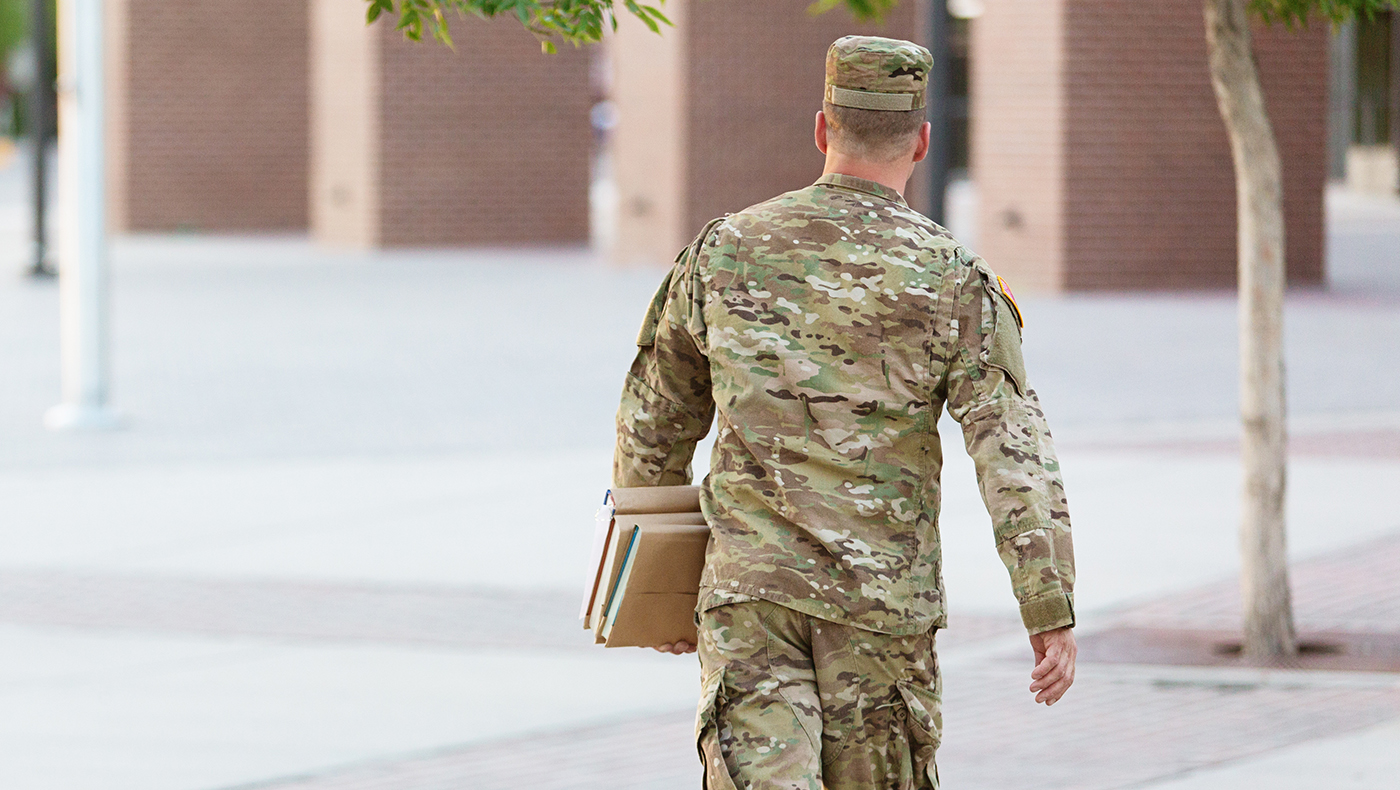A unique program at the University of Delaware is bringing together veterans, student-athletes and university experts. VCAT was created by Susan Sheehy, a UD School of Nursing faculty member in the College of Health Sciences and a veteran of the US Army Nurse Corps, as a program where post-9/11 veterans gain knowledge and skills to live healthy lifestyles as they reintegrate into civilian life after military deployments.
The program has two components, one is wellness classes taught by university experts and the other is physical workouts partnered with student-athletes. Bebe Gaynor and Jen Graber, also faculty members in the School of Nursing, are co-directors on the project, which has been funded by the UD College of Health Sciences.
Each semester, a group of 10 veterans are paired with student-athletes who work out together twice a week for 75 minutes. The two groups push one-another through workouts and develop a camaraderie that extends beyond the hours of the program. The workouts are led by certified personal trainer and VCAT Project Coordinator, Leah Settipane.
Brandon Quanci, Class of 2021, is a finance and financial planning and wealth management double major with economics and trust management minors, and is one of the student-athletes participating in the program. Quanci recently invited the veterans, their families and the student-athletes involved in VCAT for a barbeque at his home.
“This is the first time I’ve worked with veterans this intimately, spending so much time together and really getting to know each other,” Quanci said. “After a wellness class, we eat breakfast all together and we get to know each other there. Then we start our workouts. I am partnered with one veteran but it’s really just a whole group effort. You prioritize pushing that singular person to get stronger.”
Quanci, a member of the UD track and field and cross country club teams, found out about the VCAT program at an event for student-athletes. He said that he was inspired to participate in the program because his uncle was in the National Guard and his mother works for the USO.
“It’s definitely important,” Quanci said about the program. “I know that for a lot of these guys this program is a huge part of their lives. They’ve said that this is what gets them up in the mornings. Waking up each morning knowing that they want us to be there and knowing that they went through things I will never understand makes me want to go.”
Jennifer Zelvin McCloskey, instructor of business law, trusts and fiduciary income tax and director of the trust management minor at UD’s Alfred Lerner College of Business and Economics, had similar motivations for participating in the program. She worked with Carolyn Levine, professor of accounting and chairperson of the Department of Accounting and MIS, to develop a presentation about household finances for the VCAT program.
“I was very personally excited about being invited to participate in this program because I feel very strongly about two things: First that our veterans should be provided every possible opportunity for success once returning to civilian life and second, that financial wellbeing isn’t something people need a degree in to be proficient,” Zelvin McCloskey said. “Providing tools to people who may or may not know the best way to manage money is essential for anyone’s future success in our society.”
Zelvin McCloskey and Levine hosted two sessions on household finances as part of the larger wellness workshops provided to veterans by the VCAT program. Other topics presented by UD faculty and staff at these sessions range from nutrition, health coaching, communication, spirituality, sleep, resilience, happiness, meditation and more.
“Working with the veterans in this group was extraordinary,” Zelvin McCloskey said. “This group of veterans, on the whole, were very organized and advanced in their financial wellbeing. I found this provided an opportunity to connect on a more personal level to provide individualized direction to increase their already proficient financial acumen.”




